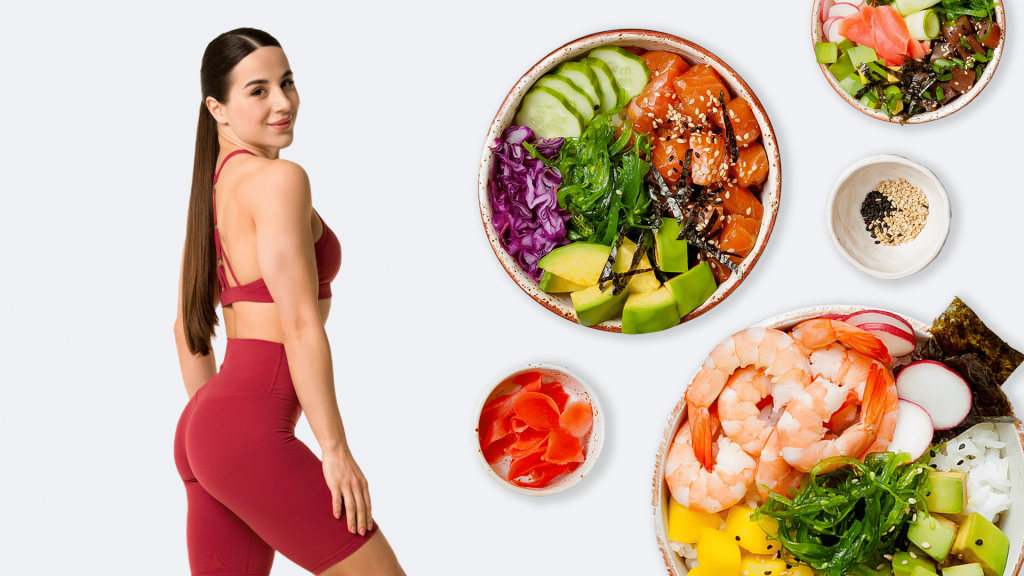If you want to lose weight and take a few inches off, try intermittent fasting, a research-backed weight-loss regimen. Intermittent fasting is a form of fasting in which there are intervals of fasting and eating. Besides helping with fat loss, it may also unfold considerable health benefits if you religiously follow the rules of intermittent fasting.
There are many types of intermittent fasting, but the key is in finding the interval period that gives the best results and fits your life best (11). For years people have followed caloric restriction diets for weight loss where calorie intake is reduced on a fixed basis. This method can be quite hard. On the other hand, you only need to restrict yourself to around three days a week for some types of intermittent fasting.
That said, how do you go about it? And what are the rules of intermittent fasting? Fear not – read along to equip yourself with all the information you need to embark upon a miraculous fitness journey!
What is Intermittent Fasting?
Intermittent fasting is a weight loss dietary plan which works by emphasizing ‘when’ to eat rather than ‘what’ to eat. The timing of when you will eat plays a key significance in the weight loss journey. It requires fasting for fixed intervals, then eating for a regular period.
As a simple diet plan, intermittent fasting for beginners is quite easy. It requires limiting yourself to when to eat. Individuals without any underlying medical condition or history of disordered eating and who are not pregnant or breastfeeding can give it a shot.
Fasting has been around since ancient times. It has aided the human body to survive without food or water for long periods during times of scarcity. It is now thought that fasting may help prevent or manage some chronic diseases and reduce inflammation markers (7).
BetterMe app will kick you out of the mental funk, shake off your extra weight, rid you off your energy-zapping habits, and help you sculpt the body of your dreams. Intrigued? Hurry up and change your life for the better!
What Are the Benefits of Intermittent Fasting?
Who would have thought that following a weight loss diet plan could increase longevity and reduce inflammation? Surprisingly, intermittent fasting tags along with many potential benefits. For instance, it may help with insulin sensitivity, possibly decreasing the risk of diabetes. It might also promote longevity and reduce oxidative stress, improving overall health and immunity (2)(4).
Surprisingly, intermittent fasting might also benefit patients with inflammatory diseases like asthma by reducing inflammation and promoting the repair of damaged cells and autophagy. The research is still in its early phases, but if proven true, these perks might help decrease the effects of chronic disease (7).
When you follow the rules of intermittent fasting, you are bound to eat during the day and fast mostly at night. This aligns with your circadian rhythm, which is the internal clock. This makes it easier for most people.
What Are Different Types of Intermittent Fasting?
You will come across different categories when you start exploring the world of intermittent fasting. Generally, there are three types of fasting.
- Time-restricted fasting is the first type, having fixed fasting and eating windows. The most popular method is the 16/8 intermittent fasting with 16 hours fast and an 8-hour eating window. Another option is the 14/10 method, which involves fasting for 14 hours and a 10-hour eating window. The easiest is the 12/12 method, which has 12 12-hour fasting periods and 12 eating windows (8).
- The second type is the Alternate Day Fasting, in which you fast on alternate days. The fast can either be eating nothing or eating a drastically reduced number of calories.
- The third type is the 5:2 Method, in which you fast twice a week (on non-consecutive days) and eat normally for the rest of the five days.
Other forms also exist. One is the more extreme version in which 24-hour fasts are done. This is the “eat: stop: eat” version. Another crash diet type is the “One Meal a Day or Warrior Diet,” in which only a meal fulfilling all daily calorie requirements is eaten. It can be dangerous to go on such long periods of fasting, so caution must be exercised while doing such fasts (8). Always talk to your healthcare provider before starting.
Modified Intermittent fasting, called Bone Broth Fasting, is also becoming popular due to the nutritional benefits of bone broth. During this fasting, warm bone broth is drunk many times a day instead of full meals.
What is Allowed and Not Allowed during Intermittent Fasting?
Here is the good part: you are only restricted from eating during the fasting period. Whereas, during the eating window you can eat any well-balanced meal. Even then, eating sensibly and in moderation is better, or you might lose the benefit of your fast. The main concern is restricting any calories during the fast and eating healthy meals during the eating periods.
Hydration is crucial and curbs hunger, so you must drink water during fasting. The general rule is to drink plain sparkling or mineral water during the fast to prevent dehydration.
Water and zero-calorie drinks can be taken even during the fasting period. This means you can have plain tea or coffee without sugar or milk additives. Similarly, herbal teas count as zero-calorie beverages and can be taken as many times as you need. Caffeine may help to suppress appetite and help in maintaining the fast, but be careful not to overdo it (1).
Sugar-free electrolyte solutions are also an option, as they do not add calories. But, they can help to maintain the electrolyte balance in the normal range, even during longer fasts.
In the eating window you can eat normally but steer clear of overeating. Your food should be nutritious and not excessive in calories. Otherwise, the purpose of the fast is defeated, and you’re not likely to lose weight. Choosing more fruits, vegetables, legumes, whole grains, lean proteins, and healthy fats, is ideal.
What Are the Rules of Intermittent Fasting for Weight Loss?
If you want to lose weight, you must abide by the rules of intermittent fasting for weight loss, which is primarily to cut down daily calorie intake even during the eating window. Losing weight requires you to burn more calories than you take in, regardless of what diet or fasting regimen you are on. The first step is to decide what type and period of fasts will suit you. After selecting the fasting lengths, stick to them consistently, as consistency is key in serving the purpose of fasts.
The next rule is to fast with zero calorie consumption and eat nutritious, fulfilling, well-balanced meals during the eating window. Include plenty of fruits, vegetables, legumes, whole grains, lean proteins, and healthy fats. Pre-plan your meals so you don’t go for convenience foods out of hunger. Practice mindful eating and portion control to limit highly processed foods and effectively nourish your body with what it needs.
Be alert to your body’s needs. Change or adjust periods if the intermittent fasting method is too taxing. You should consider consulting a medical professional before starting the regimen and keep them in the loop. Fasting should not stop you from your daily activities or workouts. Keeping yourself active during fasts will challenge your body to burn more fat.
Hydration cannot be emphasized enough. Most people don’t drink enough water, which can hinder their weight loss success. But that does not give you the liberty to drink sweet drinks. Avoid all sugary drinks, especially sugary sodas and lattes.
Lastly, keep logging your progress and monitor the daily calories and weekly weight changes.
Read more: How Much Weight Can You Lose in a 24-Hour Fast?
Is It Better to Fast for 12 or 16 Hours?
With the 16/8 Intermittent fasting, the fast is 16 hours long and only 8 hours for eating. Whereas for 12/12 intermittent fasting, the fast is 12 hours long and eating time is 12 hours. Since 16 hours is a longer fasting time, it theoretically results in more ketogenic fat burning, and only 8 hours of eating is less time to indulge. The basic motive is to keep insulin levels down long enough to tap into stored fat burning. This is thought to be more effectively achieved in the 16/8 intermittent fasting.
For most people, 12-hour fasts are safer to partake in. You can start with 12/12 and eventually lengthen your fasts to 16 hours through gradual practice and build tolerance. After around 10 hours of fasting, the body is under mild stress and starts burning fats to replenish energy, which might accelerate weight loss. With 16-hour fasts, fat burning has more time to occur. This may, eventually, result in greater weight loss and improved insulin sensitivity.
There are various pros and cons of Intermittent fasting 16/8 and 12/12. The most compatible type is the one with more pros in your favour and the least disadvantages. The length of fasts should be determined by what suits your body, goals and lifestyle best. From the weight loss and biomarkers viewpoint, 16-hour fasts are thought to be superior to 12-hour fasts.
Why is 16 Hours the Magic Number for Fasting?
According to some research, fasting mildly stresses the body, and fats are converted to energy via ketosis due to the absence of carbs (10). This may promote the loss of fat mass. The longer the fast, the more fuel can be derived from fats, making 16 hours the best bet for fasting without being excessive.
Some proponents believe that fasting for more than 16 hours can make the body go into starvation mode and won’t give the same results. Therefore, 16 hours is thought to be the optimal duration of fasts and is rightly called the magic number.
Even research on athletes suggests that 16/8 intermittent fasting resulted in fat loss without muscle mass loss and improved some biomarkers (3). It is thought to be important that 16/8 fasting aligns with the normal circadian rhythm, which means fasting overnight (6).
Is Intermittent Fasting Safe for Everyone?
Intermittent fasting is not a one-size-fits-all-all case and is surely not safe for all. Pregnant and breastfeeding mothers should avoid it at all costs. The same goes for individuals who are underweight, have hypoglycemia, or a history of an eating disorder (8). Even children under 18 are in their growth phase, so intermittent fasting is not for them. People with diabetes, high blood pressure, or other chronic diseases should consult a medical professional before attempting intermittent fasting (5).
Can You Eat Anything While Intermittent Fasting?
Intermittent fasting is based on when to eat and not what to eat. During the fasting window, eating is taboo. You can have zero-calorie drinks. Even during the eating window, it is ideal to stay well within your caloric requirements. You can eat anything you want during the eating time, but if your aim is to lose weight and/or improve your health, you should eat in a way that aligns with those goals (9).
You can have snacks in between meals during the eating period. However, overeating or eating too many unbalanced or unhealthy meals will ultimately undermine the benefits and purpose of fasting. By pre-planning meals, you can make appetizing healthy choices.
Imagine fasting for 16 hours and eating more than two days worth of calories in just 8 hours, causing more harm and wasting the effort you just put into fasting. Whatever you eat, be mindful and practice portion control. Choose protein and fiber-rich foods to satiate yourself for longer and hydrate well to keep hunger at bay.
BetterMe app will provide you with a host of fat-frying fitness routines that’ll scare the extra pounds away and turn your body into a masterpiece! Get your life moving in the right direction with BetterMe!
What Will Ruin Intermittent Fasting?
Simply not following the rules of intermittent fasting can ruin the regimen. If you consume even a small number of calories during fasting you might break your fast early, which could make you feel like you’ve wasted your effort..
If you are trying to lose weight, limit your calorie count and exercise portion control even during the eating period. You still need to eat fewer calories than you burn to lose weight, regardless of what diet or fasting regimen you are on. Preplanning meals is a game changer, or you might indulge in unhealthy food due to hunger.
Filling with junk food during the eating window does not keep you full for longer and may lead to excessive hunger. This may compel you to break your fast early compared to eating nutrient-rich foods.
Lack of sleep, stress or hormonal imbalance may also offset the fasting benefits. Also, without proper hydration fasting might not contribute to significant progress. Consequently, not adhering to these rules of intermittent fasting may result in you wasting your efforts.
The Bottom Line
Intermittent Fasting is not just the new fad but might be a healthy way to reduce weight and live a healthy life. The rules of intermittent fasting are simple and easy to incorporate into your daily life. There are popular methods, and you can choose as per your liking. Any way you select, diligently follow the rules of intermittent fasting, be consistent and avoid overeating to garner maximum benefits.
This regime has various possible advantages, like weight loss and reduced inflammation.. Caution must still be taken and don’t forget to consult a medical practitioner before embarking on this journey.
Read more: How To Break A Fast The Right Way: A Comprehensive Guide.
Frequently Asked Questions (FAQs)
Does milk in coffee break intermittent fasting?
Ideally, milk should be avoided. But adding a splash of milk to your black coffee may be fine, as a low quantity of milk does not impact caloric intake or blood sugar.
Can you drink tea with milk during intermittent fasting?
The same goes for milk in teas as that of coffee with milk. A splash, meaning 1-2 teaspoons, may be safe without breaking the fast. However, it’s best to avoid it altogether to be sure.
Why am I not losing weight on 16/8 fasting?
First, make sure you are not eating too many calories during the eating window. You can also try longer fasting windows, a 5:2 approach or Alternate Day Fasting. Another factor could be stress or lack of sleep.
What are the best hours for intermittent fasting?
Ideally, following a circadian rhythm means not eating during the night. The fasts should start after an early dinner and go well into the morning almost till lunch. This prevents nighttime snacking and binge eating.
Does lemon water break a fast?
Lemon water on its own contains few if any calories, making it unlikely to break a fast. .
Can toothpaste break a fast?
Toothpaste contains a negligible amount of calories, so even if a small amount is accidentally swallowed, it will not break your fast.
DISCLAIMER:
This article is intended for general informational purposes only and does not serve to address individual circumstances. It is not a substitute for professional advice or help and should not be relied on for making any kind of decision-making. Any action taken as a direct or indirect result of the information in this article is entirely at your own risk and is your sole responsibility.
BetterMe, its content staff, and its medical advisors accept no responsibility for inaccuracies, errors, misstatements, inconsistencies, or omissions and specifically disclaim any liability, loss or risk, personal, professional or otherwise, which may be incurred as a consequence, directly or indirectly, of the use and/or application of any content.
You should always seek the advice of your physician or other qualified health provider with any questions you may have regarding a medical condition or your specific situation. Never disregard professional medical advice or delay seeking it because of BetterMe content. If you suspect or think you may have a medical emergency, call your doctor.
SOURCES:
- Caffeine, coffee, and appetite control: a review (2017, pubmed.ncbi.nlm.nih.gov)
- Early Time-Restricted Feeding Improves Insulin Sensitivity, Blood Pressure, and Oxidative Stress Even without Weight Loss in Men with Prediabetes (2018, sciencedirect.com)
- Effects of eight weeks of time-restricted feeding (16/8) on basal metabolism, maximal strength, body composition, inflammation, and cardiovascular risk factors in resistance-trained males (2016, translational-medicine.biomedcentral.com)
- Effects of Intermittent Fasting on Health, Aging, and Disease (2019, nejm.org)
- Health benefits of intermittent fasting (and tips for making it work) (2021, uclahealth.org)
- INTERMITTENT FASTING AND HUMAN METABOLIC HEALTH (2015, ncbi.nlm.nih.gov)
- Intermittent Fasting (2023, webmd.com)
- Intermittent Fasting: How It Works and 4 Types Explained (2022, health.clevelandclinic.org)
- Intermittent fasting: Fad or valid weight-loss solution? (2022, mayoclinichealthsystem.org)
- Intermittent fasting: the science of going without (2013, ncbi.nlm.nih.gov)
- Intermittent fasting vs daily calorie restriction for type 2 diabetes prevention: a review of human findings (2014, sciencedirect.com)









